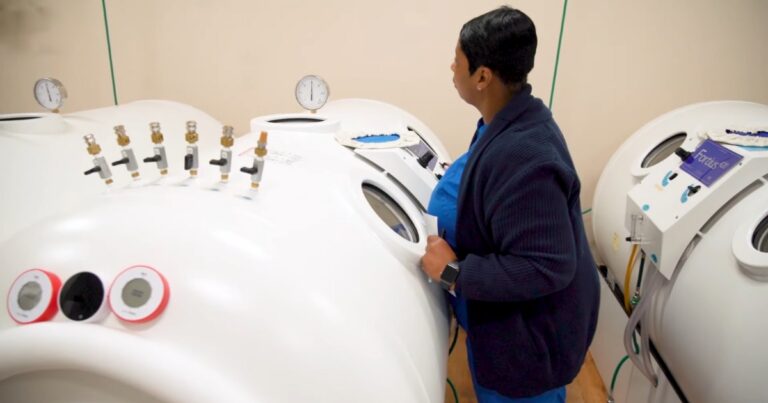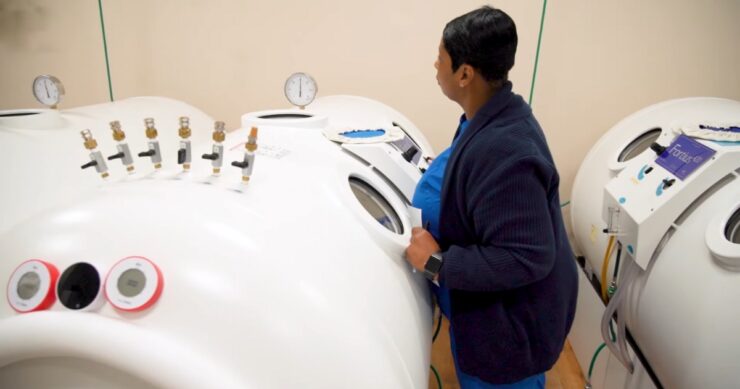Navigating fertility in your 30s can be a complex yet hopeful journey. As you step into this pivotal decade, understanding and enhancing your fertility becomes crucial for those aspiring to start or expand their families. This comprehensive guide is designed to equip you with practical, research-backed insights.
We’ll explore key lifestyle changes, health strategies, and medical advancements that can significantly boost your fecundity. Our goal is to make this journey less daunting and more empowering, offering you the tools and knowledge to approach fertility in your 30s with optimism and informed confidence.
Understanding Fertility in Your 30s
Your 30s are a transformative time for fertility. While it’s true that fertility naturally starts to decline, most individuals in their 30s can conceive successfully. The key is to understand the biological changes occurring during this time. A decrease in egg quality and quantity, hormonal fluctuations, and other age-related factors can impact fecundity.
Armed with this knowledge, you can make proactive choices. Whether it’s seeking early consultation with fertility specialists such as Zora Health or adopting lifestyle changes, understanding these shifts empowers you to navigate your fertility journey with greater awareness and precision.
The Importance of a Balanced Diet
Nutrition significantly impacts fertility, and a well-balanced diet is a cornerstone of reproductive health. Incorporating a variety of fruits, vegetables, whole grains, lean proteins, and healthy fats can substantially improve your chances of conception. Nutrients like folate, zinc, and omega-3 fatty acids are particularly beneficial.
On the other hand, reducing intake of processed foods, excessive caffeine, and alcohol is advisable. A diet rich in antioxidants can also improve egg and sperm quality. Embracing a nutrient-dense diet not only supports your fecundity but also establishes a foundation for a healthy pregnancy and overall well-being.
Regular Exercise and Fertility
Physical activity is crucial for maintaining overall health and has positive implications for fertility. Moderate, consistent exercise like brisk walking, yoga, or swimming can improve fertility by enhancing blood flow, balancing hormones, and reducing stress.
It’s important to strike a balance; while regular exercise is beneficial, excessive or high-intensity workouts can negatively impact fecundity, particularly in women. The goal should be to maintain a healthy body weight and reduce stress, creating an optimal environment for conception. Tailoring your exercise regimen to be fertility-friendly can make a significant difference in your journey towards parenthood.
Understanding Your Cycle
In-depth knowledge of your menstrual cycle is essential for optimizing fertility. The ‘fertile window,’ the time when conception is most likely, includes the days leading up to and the day of ovulation. Accurately identifying this window can significantly increase your chances of becoming pregnant.
Methods such as monitoring basal body temperature, observing cervical mucus changes, and using ovulation predictor kits can be effective. Digital apps and fecundity trackers offer modern, convenient ways to monitor these signs. Understanding your cycle’s nuances empowers you with the best timing for conception, making your efforts more targeted and efficient.
The Role of Stress Management

Stress, both physical and emotional, can have a profound impact on fertility. High-stress levels can disrupt hormonal balance, affecting ovulation and sperm production. It’s crucial to incorporate stress-reduction techniques into your daily routine. Mindfulness, yoga, and meditation are effective ways to manage stress.
Additionally, activities like hobbies, spending time in nature, or engaging in gentle exercise can be therapeutic. Seeking support through counseling or support groups can also be beneficial. Creating a stress-free environment isn’t just about reducing tension; it’s about nurturing a state of mental and physical well-being that is conducive to conception.
Importance of Sleep and Fertility
Quality sleep is often overlooked in fertility discussions, yet it plays a vital role. Sleep regulates hormones, including those crucial for reproduction. Lack of sleep can disrupt your menstrual cycle, decrease sperm quality, and affect hormones like estrogen and progesterone. Aim for 7-9 hours of uninterrupted sleep per night.
Establishing a regular sleep schedule, creating a restful sleep environment, and avoiding stimulants like caffeine and electronics before bedtime can enhance sleep quality, thus supporting your fecundity journey.
Monitoring and Enhancing Reproductive Health
Regular health check-ups are vital for identifying and addressing issues that can impact fertility. This includes screenings for sexually transmitted infections, pap smears, and general health assessments. For men, semen analysis can provide valuable insights into sperm health.
Women should consider tests to evaluate ovarian reserve, like antral follicle count or AMH levels. Early detection of potential issues allows for timely interventions. It’s also important to discuss any pre-existing conditions like PCOS, endometriosis, or thyroid disorders with your healthcare provider, as they can affect fecundity.
The Impact of Environmental Factors

Environmental factors can significantly influence fertility. Exposure to toxins, chemicals, and radiation in daily life can affect both egg and sperm quality. It’s essential to be aware of and minimize exposure to harmful substances found in plastics (like BPA), pesticides, and heavy metals.
Opting for organic produce, using natural cleaning products, and avoiding plastic containers for food and drink can reduce exposure. Also, consider the impact of workplace hazards and discuss any concerns with your healthcare provider.
Supplementing for Fertility
Supplements can play a supportive role in enhancing fertility. Folic acid is well-known for its importance in early pregnancy, but it’s also beneficial for fertility. Coenzyme Q10, vitamin D, and omega-3 fatty acids can improve egg and sperm quality.
However, it’s crucial to consult with a healthcare provider before starting any supplements. They can recommend the right supplements and dosages based on your individual health needs and fertility goals.
The Role of Medical Interventions
Medical interventions can play a vital role in boosting fecundity, especially in your 30s. It’s essential to consult with a healthcare provider to understand your specific needs. Interventions like fertility medications, in vitro fertilization (IVF), or intrauterine insemination (IUI) can be considered, depending on individual cases.
Early intervention often increases the chances of success. Regular health check-ups, discussing your family history, and understanding any potential fecundity issues are critical steps. Your healthcare provider can also guide you on the benefits and risks of each intervention, helping you make an informed choice.
Conclusion

Boosting fertility in your 30s is a multifaceted journey that involves understanding your body, making healthy lifestyle choices, and seeking appropriate medical interventions when necessary.
It’s about creating a balance that nurtures both your physical and mental well-being. With the right knowledge and support, navigating your fecundity journey can be a fulfilling and hopeful experience.
Related Posts:
- Visiting Mount Ararat 2024: Tips for a Journey to…
- What Are Parlay Bets and Should You Try Your Luck?…
- Becoming a Celebrity and Building Your Brand: 10…
- UK Marriage Visa: Choosing the Right Visa for Your…
- How Long Does CBD Oil Stay in Your System? 2024 Tips…
- Whisky benefits and side effects on Your Health











